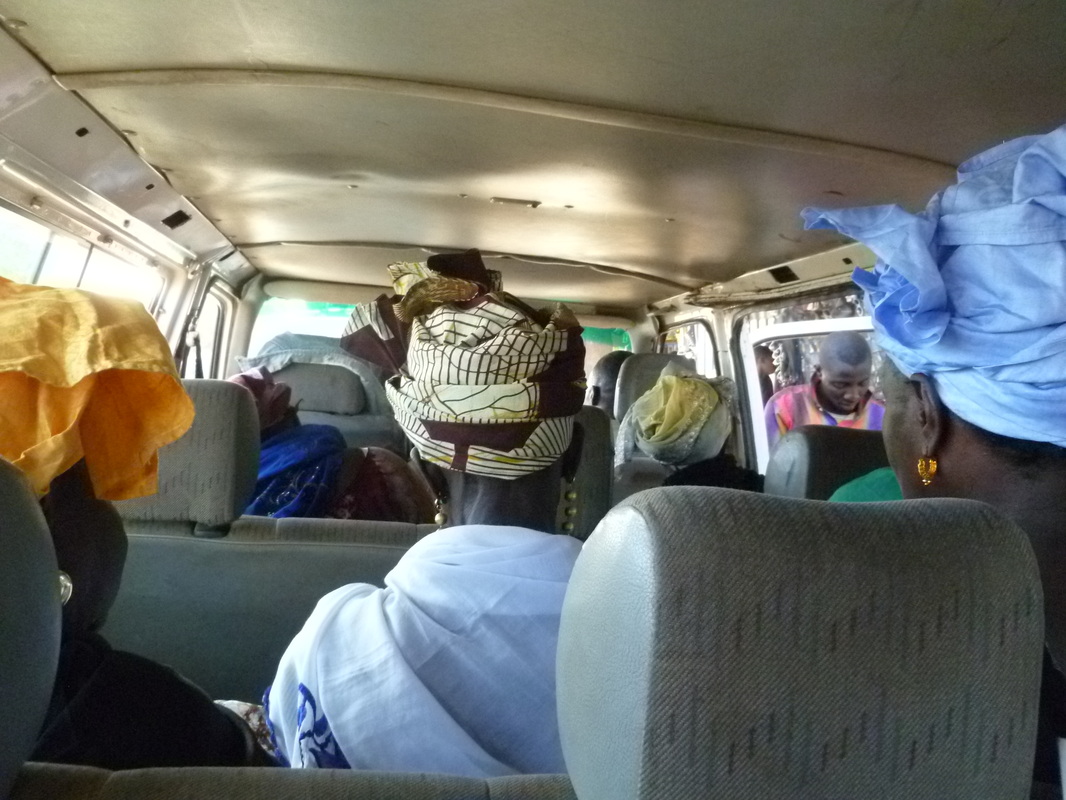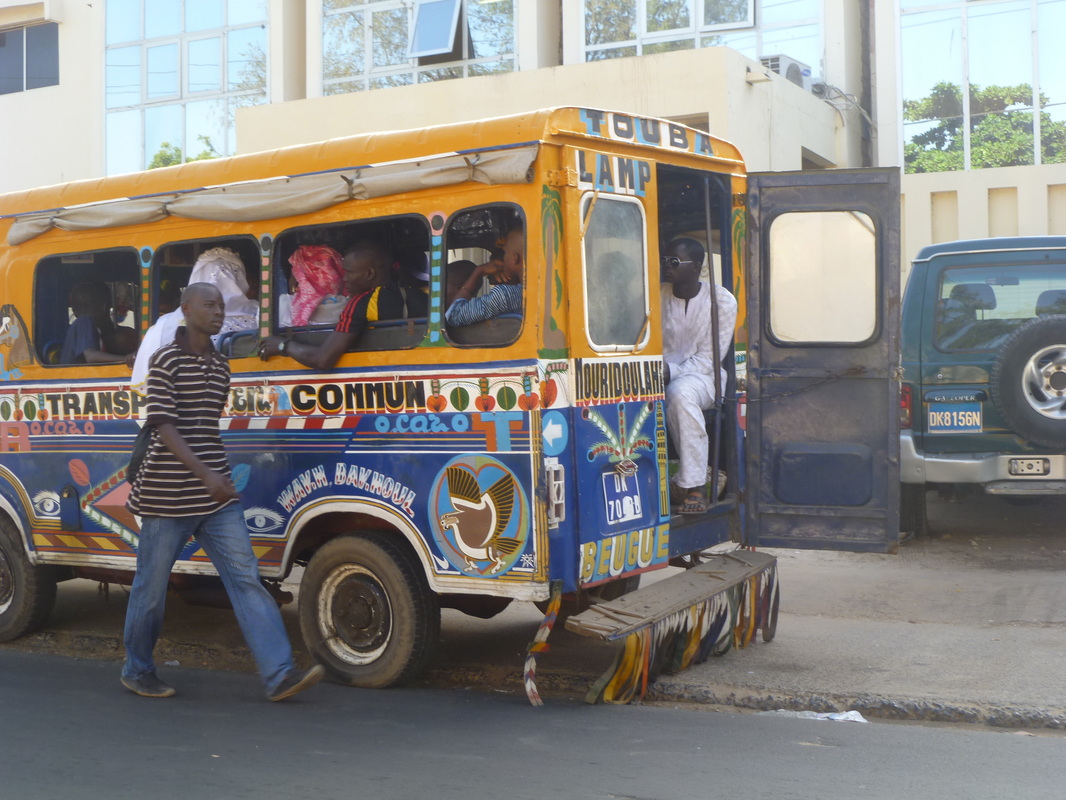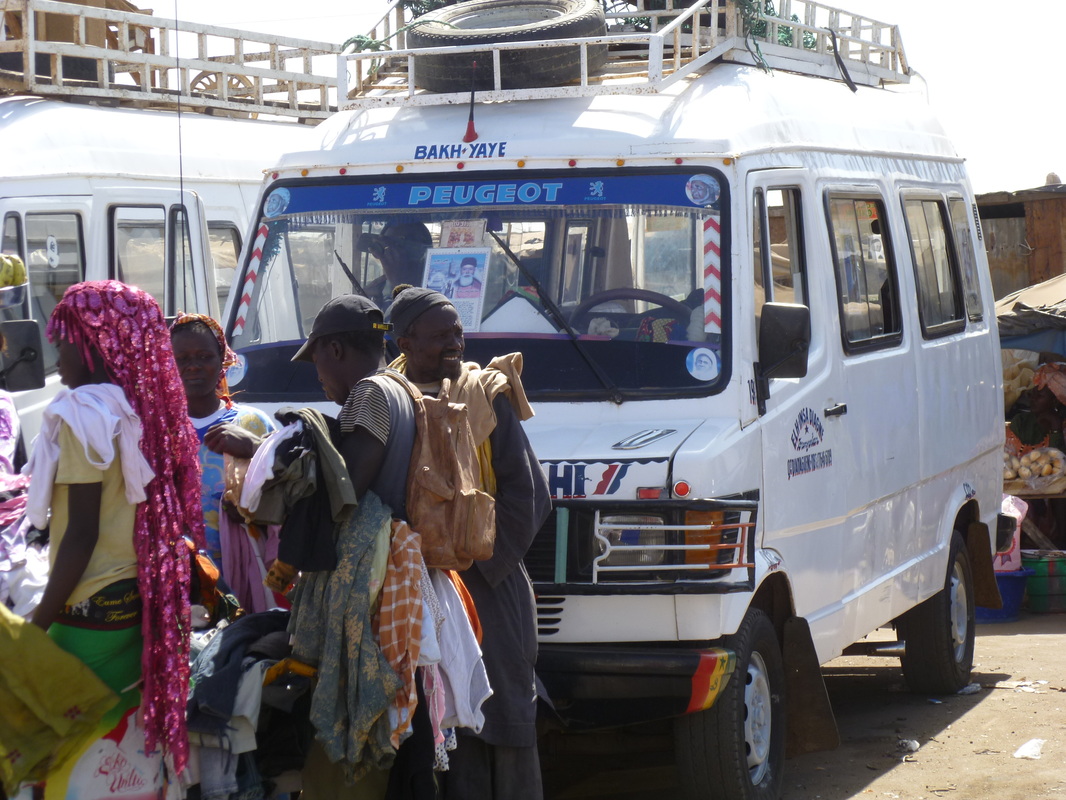|
On the sept-place (seven-seat station wagon) we crammed into for the ride from Dakar to Saint-Louis, three women sat in front of us wearing traditional wraps of fine printed fabrics in yellow and pink, with headscarves that they kept tidying in the wind. As the car rumbled to a start, they turned around and plopped clementine oranges in our laps. They also passed back butter cookies to share. It was a moment of kindness that softened our pokey seats. I offered the women our chocolate wafer cookies in return, and they accepted. Later, when a young boy came to our window with his hand held out, I gave him another orange that I had brought with me. Because the women gave me a clementine, I had an orange to give to the boy. It was a simple equation of generosity that makes being human seem so straightforward.
It’s the sum of these little human exchanges that I think makes public transportation possible in Senegal. The sept-place really only have room for six adults, but are sometimes filled with eight or nine. The Mercedes taxis we take have no resemblance to the upper-class cars driven in the U.S. They’re stripped to their metal bones, with no working instruments at all in the dash, doors that can only be opened from one side, and windows that won’t open. Some must be pushed to start—but whoever is standing nearby always seems to lend a hand. The larger mini-buses that are packed with 20 to 30 adults, sitting thigh over thigh, fill with heat and dust as they teeter-totter along the pot-holed roads. But perhaps the best part of traveling in Senegal has been bouncing along in these rattletraps. Though tiring and challenging, traveling in the local buses and taxis shows me how the Senegalese people relate to each other and to us, the dust-covered foreigners who have messy hair and speak bad French. For example, it’s thanks to two college math teachers, Omar Diagne and Mbaye Ndao, whom we met in the dark back of a bread delivery truck/taxi, that we easily negotiated the changes between the six different unmarked taxis, buses, and ferries that it took to get between Palmarin and Foundiougne in the country’s Sine-Saloum Delta. Another man named Etienne Dogue, who works for Heifer International in Senegal, was traveling home for Christmas to a village nearby Foundiougne with his wife Fatou and boisterous baby boy, Laoo. Etienne showed us the way to our hotel and invited us to his village on our next visit. Many other people have pointed us to the right vehicle, made room for us and our bags, told us where to get off, and wished us a “bonne continuation” of our journey. As we’re left on the side of the road, wondering what to do next, we watch our ride sputter away in a haze of exhaust, fueled by humility, humor, and so much kindness. It’s usually only a minute or two before someone asks us where we’re going and tells us how we can get there.
5 Comments
|
Archives
July 2012
Categories
All
|



 RSS Feed
RSS Feed